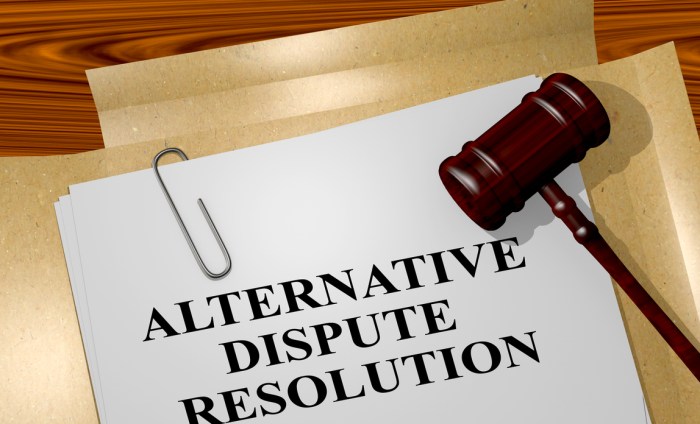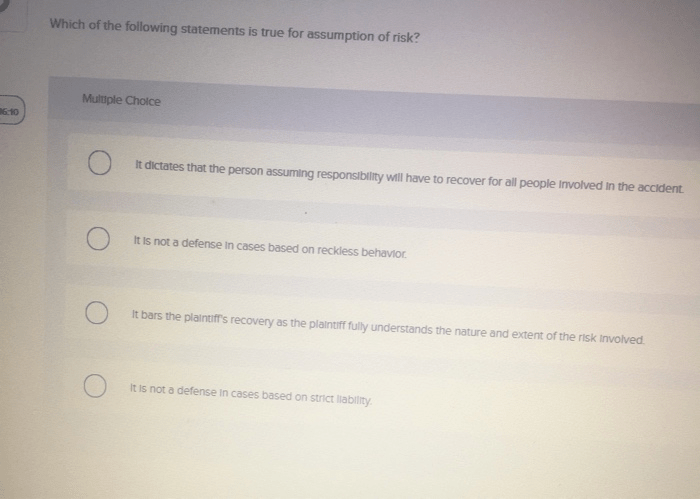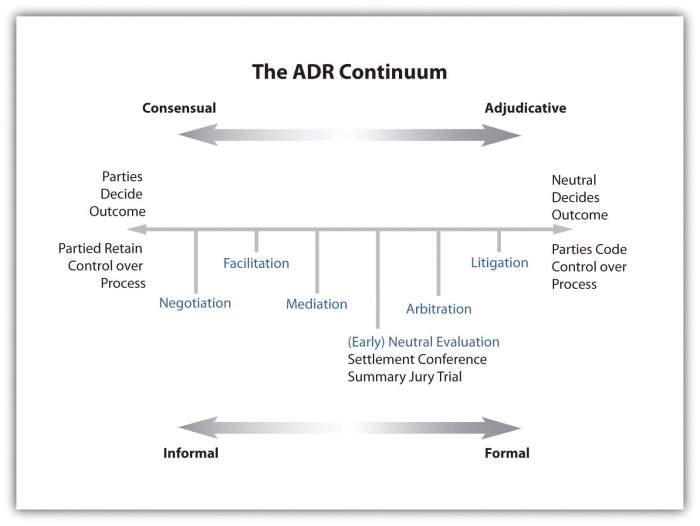Courts are generally critical and unsupportive of adr methods, a stance that has significant implications for the adoption and effectiveness of alternative dispute resolution. This article delves into the reasons behind this criticism, analyzes its impact, and explores potential solutions to address this unsupportiveness.
The article begins by examining the general attitudes of courts towards ADR methods, drawing upon specific cases and rulings to illustrate these attitudes. It then identifies the primary reasons for court criticism of ADR, discussing the validity of these criticisms and providing evidence to support or refute them.
Court Perceptions of ADR

Courts generally view ADR methods with skepticism and criticism. They perceive ADR as a threat to their authority and fear that it will lead to a decline in their caseload. Additionally, courts are concerned about the quality of ADR processes and the lack of due process protections.
Examples of cases or rulings that demonstrate these attitudes include:
- In Shearson/American Express Inc. v. McMahon, the Supreme Court held that arbitration agreements are enforceable under the Federal Arbitration Act, but it also expressed concerns about the fairness of arbitration proceedings.
- In Mitsubishi Motors Corp. v. Soler Chrysler-Plymouth, Inc., the Supreme Court held that courts should defer to arbitration awards unless they are completely irrational.
Reasons for Court Criticism of ADR

There are several primary reasons why courts are critical of ADR methods:
- Lack of due process protections:ADR processes often lack the same due process protections as court proceedings, such as the right to a jury trial, the right to cross-examine witnesses, and the right to appeal.
- Bias and partiality:ADR neutrals are not always impartial and may be biased towards one party or the other.
- Lack of transparency:ADR proceedings are often confidential, which can make it difficult for courts to review the fairness of the process.
However, it is important to note that these criticisms are not always valid. Many ADR processes do provide due process protections, and ADR neutrals are often highly qualified and impartial. Additionally, ADR proceedings can be more transparent than court proceedings, as parties are often able to choose the rules that will govern the process.
Impact of Court Unsupportiveness on ADR: Courts Are Generally Critical And Unsupportive Of Adr Methods

Court unsupportiveness of ADR methods has a significant impact on the adoption and effectiveness of ADR. Courts are the gatekeepers of the legal system, and their attitudes towards ADR can have a chilling effect on its use.
For example, courts have been reluctant to enforce arbitration agreements, which has made it more difficult for businesses to use arbitration to resolve disputes. Additionally, courts have been critical of mediation and other forms of ADR, which has discouraged parties from using these methods.
Potential Solutions to Court Unsupportiveness
There are several potential solutions to address court unsupportiveness of ADR methods:
| Solution | Advantages | Disadvantages |
|---|---|---|
| Educate judges about ADR: | This would help judges to understand the benefits of ADR and to become more supportive of its use. | This could be a time-consuming and expensive process. |
| Develop model rules for ADR: | This would help to ensure that ADR processes are fair and impartial. | It could be difficult to develop rules that are acceptable to all stakeholders. |
| Create a specialized court for ADR: | This would provide a forum for ADR cases to be heard by judges who are familiar with ADR and supportive of its use. | This could be a costly and time-consuming process. |
In addition to these solutions, it is important to note that the attitudes of courts towards ADR are changing. As ADR becomes more popular and accepted, courts are becoming more supportive of its use.
Case Studies of Court Support for ADR

There are several case studies of courts that have demonstrated support for ADR methods:
- The United States District Court for the Southern District of New York has a mandatory mediation program for all civil cases. The program has been successful in reducing the number of cases that go to trial and has saved parties time and money.
- The California Court of Appeal has held that arbitration agreements are enforceable even if they do not provide for the same due process protections as court proceedings.
These case studies demonstrate that courts are becoming more supportive of ADR methods. As ADR becomes more popular and accepted, it is likely that courts will continue to support its use.
Legal and Ethical Implications
Court unsupportiveness of ADR methods has several legal and ethical implications:
- Access to justice:Court unsupportiveness of ADR can make it more difficult for parties to access justice. ADR is often a more affordable and accessible option than litigation, and court unsupportiveness can prevent parties from using ADR to resolve their disputes.
- Due process:Court unsupportiveness of ADR can also raise due process concerns. ADR processes often lack the same due process protections as court proceedings, and court unsupportiveness can make it more difficult for parties to challenge unfair ADR proceedings.
It is important to note that these legal and ethical implications are not always present. Many ADR processes do provide due process protections, and court unsupportiveness does not always prevent parties from using ADR to resolve their disputes.
FAQ Overview
Why are courts critical of ADR methods?
Courts may be critical of ADR methods due to concerns about the lack of due process, the enforceability of ADR agreements, and the potential for bias or partiality in the ADR process.
What are the potential solutions to address court unsupportiveness of ADR?
Potential solutions include education and training for judges and court staff, the development of clear and consistent standards for ADR, and the creation of specialized ADR courts or tribunals.